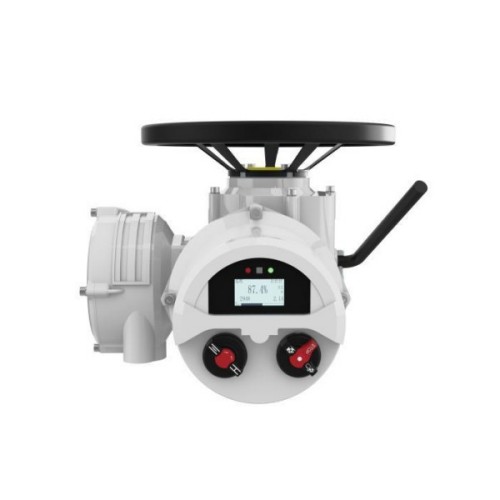Forged Steel Swing Check Valve for Efficient Backflow Prevention and Reliable Performance
Forged Steel Swing Check Valve A Comprehensive Overview
In the realm of industrial piping systems, the swing check valve plays an essential role in ensuring the efficient and safe flow of fluids. Among various types of swing check valves, the forged steel swing check valve is highly regarded for its durability, performance, and versatility. This article delves into the characteristics, advantages, applications, and maintenance of forged steel swing check valves.
Understanding Forged Steel Swing Check Valves
A swing check valve is designed to permit fluid flow in one direction while preventing backflow. The functionality of this valve is dependent on a disc that swings on a hinge, allowing it to open under pressure and close automatically when the fluid flow ceases, thus preventing reverse flow. When constructed from forged steel, these valves exhibit enhanced structural integrity and can withstand extreme pressures and temperatures.
Forged steel swing check valves are made through the process of forging, which entails shaping metal through localized compressive forces. This results in a product that possesses superior strength, as the forging process refines the grain structure of the steel, enhancing its overall mechanical properties.
Advantages of Forged Steel Swing Check Valves
1. High Strength and Durability The primary advantage of forged steel is its superior tensile strength compared to cast materials. Consequently, forged steel swing check valves can handle higher pressures and stresses, making them suitable for critical applications in various industries.
2. Corrosion Resistance Many forged steel valves are treated with finish coatings or are made from corrosion-resistant alloys. This feature ensures that the valves maintain their integrity even in harsh environments, such as those involving chemicals or extreme temperatures.
3. Compact Design Forged steel swing check valves often have a more compact design than their cast counterparts, which allows for easier installation in tight spaces. This aspect is especially important in industries where space is at a premium.
4. Improved Flow Characteristics The design of the swing check valve, combined with the robust nature of forged steel, allows for enhanced flow characteristics. The disc opens fully, enabling unobstructed flow, which reduces pressure drop across the valve.
5. Versatility These valves can be utilized in a variety of applications, including water treatment plants, power generation, oil and gas pipelines, and HVAC systems. Their adaptability makes them a popular choice across different sectors.
Applications of Forged Steel Swing Check Valves
Forged steel swing check valves are employed in numerous applications, including but not limited to
forged steel swing check valve

- Water and Wastewater Treatment These valves help in managing the flow of water and wastewater, ensuring that the system operates efficiently while preventing contamination.
- Oil and Gas In both upstream and downstream applications, these valves are crucial for maintaining flow control and protecting equipment from reverse flow, thereby increasing the safety and reliability of operations.
- Power Generation In power plants, forged steel swing check valves are used in cooling water systems, steam lines, and fuel lines, where high reliability is paramount.
- Chemical Processing The ability to withstand corrosive environments makes these valves suitable for various chemical applications, safeguarding pipelines and maintaining safety.
Maintenance and Best Practices
To ensure the longevity and efficiency of forged steel swing check valves, regular maintenance is essential. Here are some best practices
1. Routine Inspection Regularly check for leaks, wear, and tear. Early detection of issues can prevent costly repairs and downtime.
2. Cleaning Keep valves clean from particles and debris that might obstruct functionality. Implement a cleaning schedule based on the system's operational demands.
3. Lubrication Ensure that moving parts, such as the hinge pin, are adequately lubricated to minimize friction and wear.
4. Proper Installation Follow manufacturers’ recommendations during installation. Incorrect installation can lead to operational failures and reduced service life.
5. Temperature and Pressure Monitoring Regularly monitor the operating conditions to ensure they remain within specified limits to prevent damages.
Conclusion
Forged steel swing check valves are a critical component in ensuring the smooth and safe operation of fluid systems across various industries. Their remarkable strength, durability, and versatility make them an excellent choice for applications requiring reliable backflow prevention. Proper maintenance and attention to best practices can significantly extend their lifespan, contributing to the overall efficiency and safety of industrial operations. By understanding their characteristics and applications, industries can leverage the full potential of forged steel swing check valves, unlocking improved performance and reliability in their fluid systems.
-
Breakthrough in Domestic Low Temperature Valve Technology in ChinaNewsAug.18,2025
-
From Machinery to Intelligent Brain: The Digital Transformation Wave of the Valve IndustryNewsAug.18,2025
-
PCVEXPO 2025NewsAug.18,2025
-
The Key to Fluid Control: Exploring the Advantages of Ball Valves in Industrial SystemsNewsJul.09,2025
-
The Versatile World of 1, 2, and 3 Piece Ball ValvesNewsJul.09,2025
-
Stainless Steel Ball Valves: The Ideal Choice for Efficient Flow ControlNewsJul.09,2025
-
Optimizing Fluid Control with Ball Float ValvesNewsJul.09,2025




